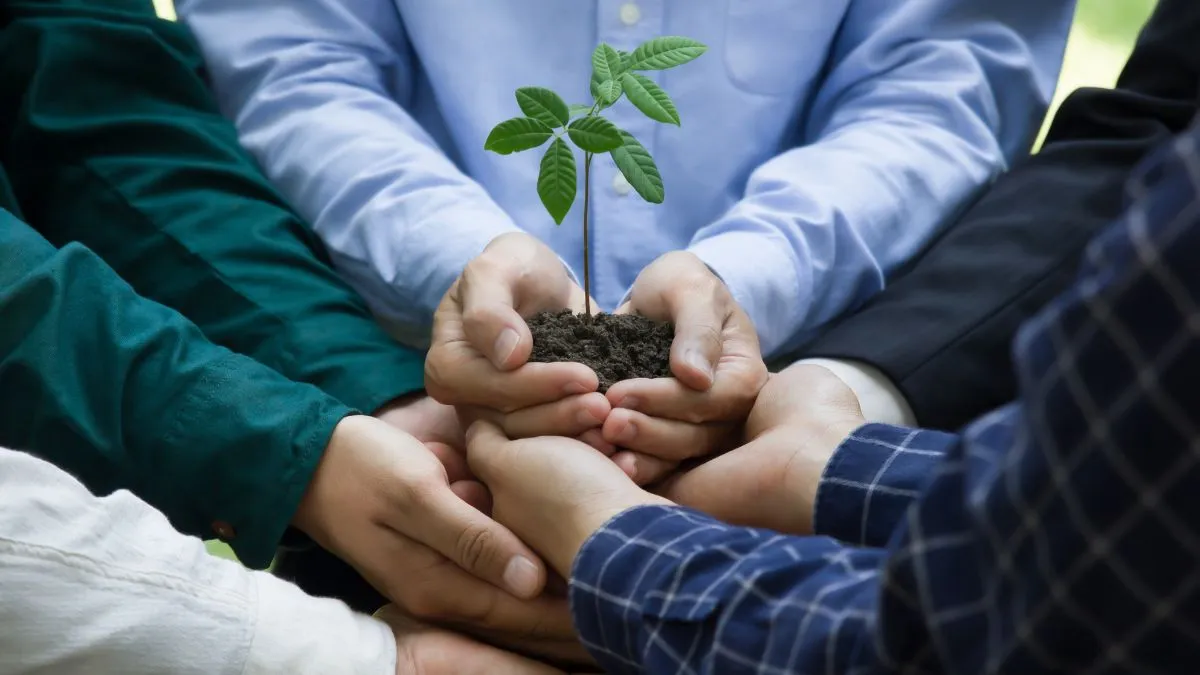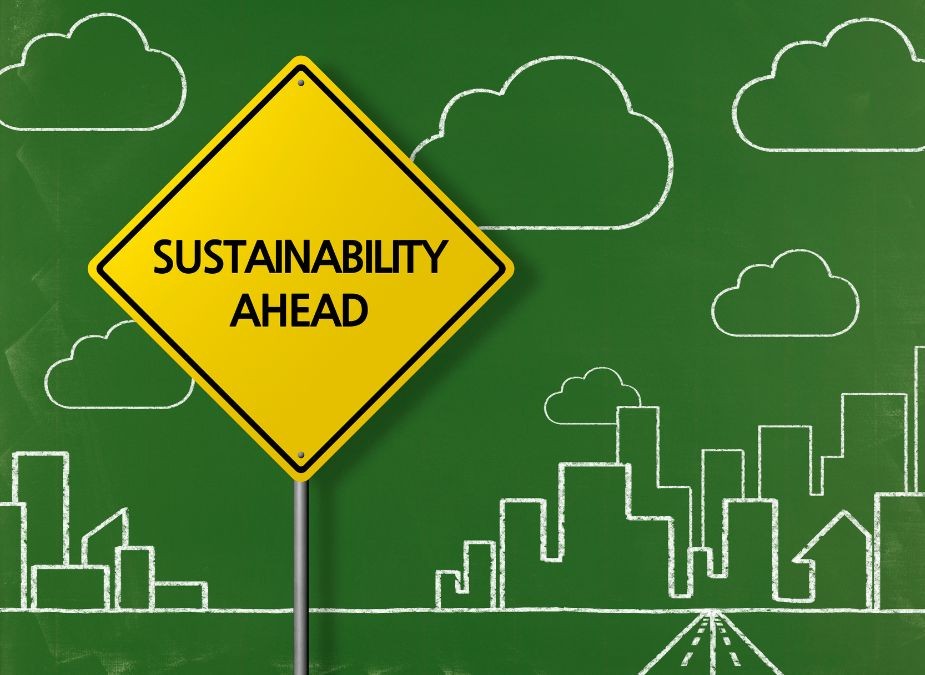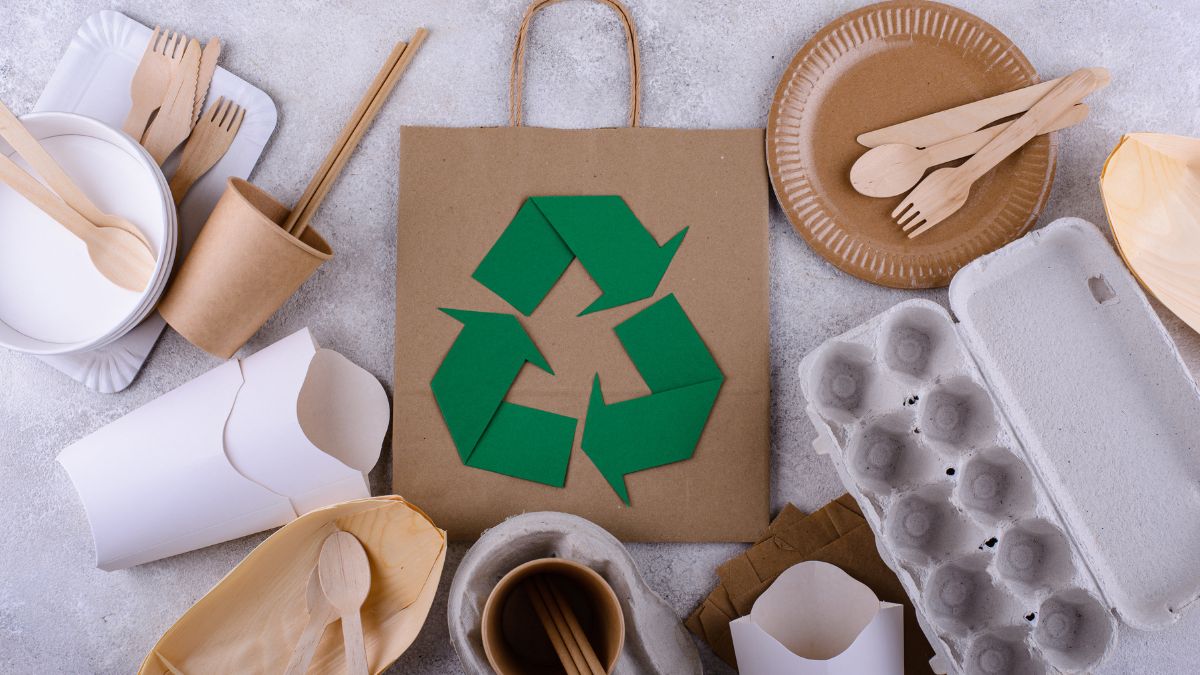
In a world where the pursuit of more has led to an epidemic of stuff, the art of decluttering has emerged as a powerful antidote to the chaos of consumerism. As we navigate the complexities of modern life, it's becoming increasingly clear that the way we live, consume, and discard has a profound impact on the planet. But what if the simple act of decluttering could be a catalyst for sustainability? Let's explore the transformative potential of decluttering and discover how this mindful practice can help us live more intentionally, waste less, and cultivate a more sustainable future.
This article is authored by Shubhanshi Chakraborty, a Sustainability expert and 17-year-old author of 'Past is Forward.'
Our generation mourns endings loudly. We grieve the last episode of a sitcom that comforted us through college. We grieve that old childhood hangout spot being replaced by another soulless block of concrete. We also grieve the last comeback of our favourite artist and laud a discontinued album like a sacred text. We do grieve, loudly and collectively. And yet, when a river quietly dries up and a forest disappears without a hiatus post, we seem to lose our usual volume, our voice, its usual sharpness.

Now, one might think that the issue lies in the disconnection we feel from nature, but I think it's actually because we have stopped staying with her long enough to notice and to understand that she’s grieving too.
These big brands have marketed sustainability to us like it’s another aesthetic. “Use metal straws”, “carry tote bags”, “go green”. Sustainability shouldn’t feel like a task, a job that you dread, a headache inducing stimulus. Instead, it should feel like a relationship you are committed to, by the permission of your own will and choice. Sustainability should stem from belonging, not from guilt.
Also watch this video
The oldest relation which we have is with the Earth, the one who is not really asking to be saved, but to be seen.
When I was younger, I used to firmly believe that I could actually hear the Earth drinking water from the rains, which is why I would find myself pressing an ear against the soil waiting for a sound that I couldn’t quite name. I didn’t know it then, but I was tuning into something way older than anything I would learn in a classroom, that the Earth is not linear. She doesn’t move in career graphs or straight lines. Instead, she moves in loops. Like relationships, like seasons or the way the past circles back to us.
Our generation has unfortunately been born in a time when the world is surrounded by broken cycles. It’s raining when it's not supposed to, seasons are shifting unpredictably, bees are vanishing, harvests are late, and even though the months are repeating, our lives despite their pace, feel stuck. And this is exactly what climate change is too. A glitch in the loop of time.
I believe that sustainability is a practice of stillness and syncing in a world that is all about urgency. We often wonder what more can be done, but perhaps we should notice more.

The sound of a river clashing against the stones blocking its way, the rustling of leaves on a windy day or even the arch of the moon during a waxing gibbous.
You will often hear the world talking about the future using keywords like ‘growth’ or ‘success’. And while everyone is rushing behind ‘development’ and ‘innovation’, the future might be of those who listen better. To the soil, to the sky and to the Earth. Because sustainability at its core is about sustenance. Sustenance of our resources and our relationship with nature.
Contrary to popular beliefs about how sustainability can be practiced, the most overlooked form is the art of goodbye.
India is a country which knows how to bid farewell with tenderness. We offer dahi-shakkar (yogurt with sugar) before the commencement of a long journey. We touch the feet of our elders before leaving for important work. We never just exit. So why don’t we offer the same to the things we waste? Like pausing once before tossing leftovers and finding ways to reuse them or trying to repair something before replacing it. What if every bad habit, every old pattern and every throwaway item was given a conscious farewell? We need to start with attention and then action will follow too.
Don't Miss: Meenakshi Bhoopalan Is Turning Food Waste Into Farming Gold: Here's Her Revolutionary Story
This is sustainability, its soil and its soul.
Keeping this in my mind, I wrote Past is Forward. A book that explores how the solutions to our contemporary climate crises may lie in looking at our soil more and listening better.
I wrote it because I was grieving all the noises drowning the voice of the Earth and not because I wanted to fix her.
If you’re tired of hearing the world is ending, then begin again. You don’t have to save the planet. You just have to stop forgetting her.
Don't Miss: 5 Ways To Reuse Shoe Boxes At Home
If you liked this story, then please share it. To read more such stories, stay connected to HerZindagi.
Our aim is to provide accurate, safe and expert verified information through our articles and social media handles. The remedies, advice and tips mentioned here are for general information only. Please consult your expert before trying any kind of health, beauty, life hacks or astrology related tips. For any feedback or complaint, contact us at compliant_gro@jagrannewmedia.com.